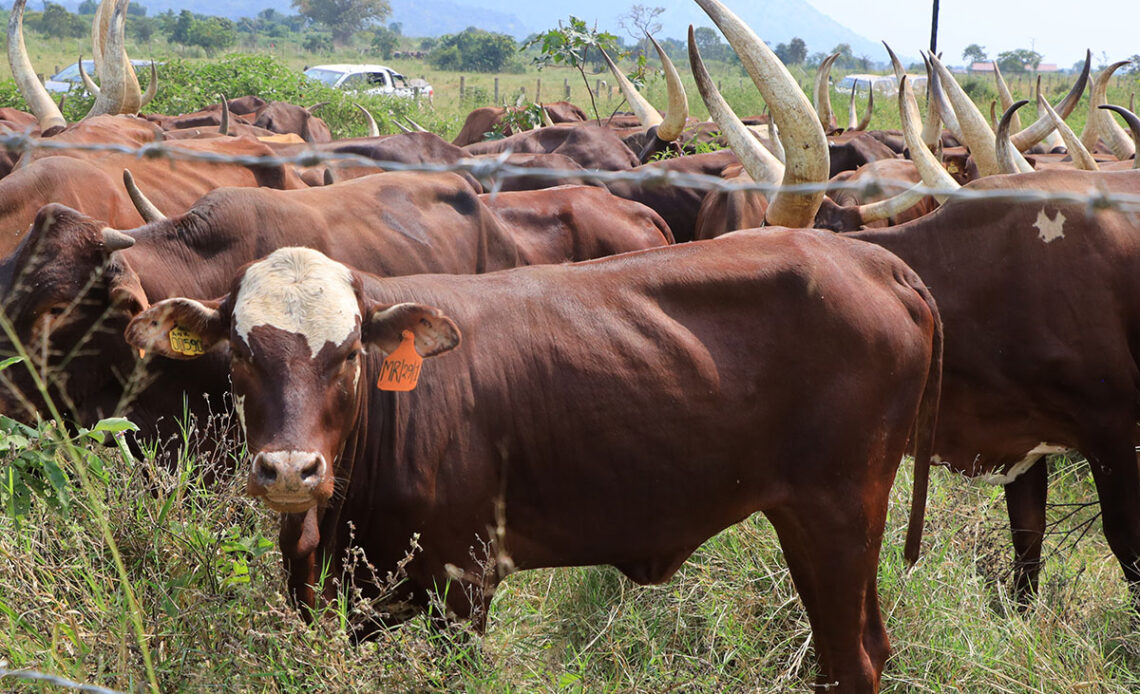
Ticks infest cattle negatively impacting health, productivity and development of the dairy and beef industry resulting into huge economic losses, especially in sub-Saharan Africa.
Annually, the total global costs linked to ticks and tick vectored pathogens in cattle range between US$ 13.9 billion and US$ 18.7 billion.
In Uganda studies have estimated that losses of over USD 1.1 billion occur annually due to ticks and tick-borne diseases including East Coast fever (amashuyo amakebe), babesiosis (redwater), anaplasmosis (kashanku) and cowdriosis (kamunguluze).
At farm level, 80% of the total annual expenses incurred in management all cattle diseases are associated with controlling tick-borne diseases.
For instance, primary ECF outbreak is usually fatal results into a 30% and up to 100% mortality of the calf crop among indigenous and naive crossbred exotic cattle respectively on an annual basis.
Generally, ticks are considered to be the most resilient and harmful parasites to the livestock globally.
For more than a century, the control of ticks and tick-bone diseases depended mainly on the use of chemical acaricides starting with arsenicals.
The use of acaricide chemicals has been favoured by their quick knockdown effect.
However, use of chemical acaricides is associated with the progressive development of global acaricide resistant tick populations which was first reported in 1937; environmental contamination; and destruction of non-target organisms notably bees and wild birds.
In addition, the development and deployment of new acaricides has become more costly and yet new acaricides are associated with faster development of resistant tick populations.
Promoting strategic innovations which are environmentally sound such as the Anti-tick vaccines to control multi-species tick infestations are highly justified.
Vaccines are the most sustainable, effective and environmentally sound alternative for tick control. Vaccines evolved from classically inactivated pathogens such as smallpox and rabies.
Anti-tick vaccines are designed to induce a protective response in vaccinated animal hosts such as cattle. When ticks suck blood from vaccinated cattle their body functions are impaired leading death of many ticks, hence resulting reduced tick populations over time.
The first anti-tick vaccines registered (TickGARD in Australia and Gavac in Cuba) were designed for the control of tick species that occur in those countries.
Anti-tick vaccines are also cheaper and more sustainable than acaricides. The best approach is to begin combining vaccination with a rational and not abusive acaricide application.
As vaccination proceeds over time and animals are more protected. This practice translates into a decrease in tick infestations and the incidence of tick-borne diseases together with the reduction in the use of acaricides.
In order to control ticks that infest cattle in Uganda, a collaboration was established between Uganda’s National Agricultural Research Organization (NARO) and a group at the Health and Biotechnology (SaBio), Institute for Game and Wildlife Research (IREC, CSIC-UCLM-JCCM), Spain, headed by Prof. Jose de la Fuente.
During the last 10 years, this collaboration has resulted in the development of vaccines specifically targeting ticks that infest cattle in Uganda (brown ear tick (Rhipicephalus appendiculatus) locally known as Engoha, African blue tick (Rhipicephalus decoloratus), locally known as entujo and tropical bont tick (Amblyomma variegatum) locally known as Embarabara.
The vaccines were derived from a protein called Subolesin which was extracted from native tick species. The early research efforts were undertaken by a NARO staff, Kasaija Paul as part of his PhD work under the supervision of Prof. Jose de la Fuente and Dr. Marinela Contreras at the University of Castilla-La Mancha (UCLM), Spain.
So far, this collaborative effort has produced two types of vaccines notably the injectable and oral vaccine anti-tick vaccines. The injectable anti-tick vaccine is administered in the muscle of cattle around the neck region while oral vaccine is given to cattle through the mouth or mixed in a suitable cattle meal.
The injectable anti-tick vaccine has been evaluated on 5 farms across the country representing five ecological zones of Uganda. The farms include Mbarara ZARDI farm in Mbarara City; Kiburara Prison farm in Ibanda District; Isimba prison farm in Masindi District; Maruzi livestock research station in Apac District; and Nabuin ZARDI farm in Nabilatuk District. During the 12 months of the field evaluation trial at Mbarara, Kiburara, and Isimba farms.
Trial cattle were sprayed twice at Mbarara and completely not sprayed at Kiburara and Isimba farms. In addition, during the ten months of the field evaluation trial, trial cattle were only sprayed once at Maruzi and completely not sprayed at Nabuin.
Trial cattle were sprayed twice. On all the farms, there were no deaths due to tick and tick-borne diseases during the trial period.
NARO has already obtained a utility model patent for the injectable and oral anti-tick vaccines (UG/U/2023/6) and efforts are underway to acquire clearance from the national regulatory bodies to register and recommend use of the vaccines by farmers.
After registration and with support of the Government of Uganda, NARO will massively produce and rollout the vaccine to livestock farmers in and outside the country.
The collaboration between Ugandan and Spanish researchers with support from national authorities highlights that working together is the best approach to face socioeconomic challenges and translate scientific results into new interventions for building a more sustainable and equitable world.

